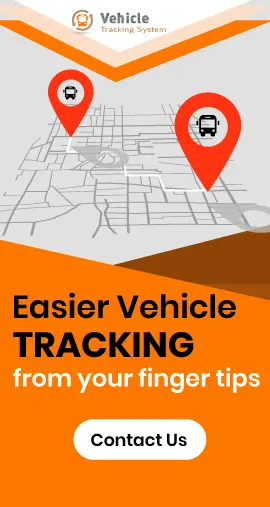How Telematics is Changing Fleet Management Systems
January 6th, 2020
What is the first thing that comes to your mind when you hear the word ‘fleet’? It might be the image of a large group of ships, right? A fleet can be a group of vehicles that range from ships to aircraft to trucks to cars.
When a large group of vehicles is owned by one business, there has to be some system to manage the fleet so that things don’t go out of hand. The introduction of telematics is changing the fleet management systems.
Fleet management is the management of commercial private vehicles, specialist vehicles, aircraft, ships and railcars. This service helps companies to maintain and coordinate work vehicles to improve efficiency and provide better services.
These services typically include cars, trucks and vans. Businesses can keep track of their vehicles through fleet management to see if they are working according to the government regulations, company regulations and to make sure that there is no idling time and thus a reduced cost.
Before the introduction of telematics technology fleet management was a long and complicated task in which the managers were often blind about what where their vehicles were, who was driving their vehicles at what time or anything else to do with their vehicles.
Read Also: Driving in Qatar – Basic Guidelines and Tips
Fleet management was not an effective process then. Drivers of the vehicles had to depend on a physical map or outside help for directions which was very time consuming. The drivers also had to have good knowledge about the vehicles they were driving in order to handle it on long journeys
Have you ever wondered where your truck is and what the drivers are doing? Managers often used to worry whether their trucks reached the location on time or whether too much money is being spent because of their blindness.
Hiring someone to be on board every vehicle accompanying the drivers to report their journey details was not a feasible option, even if it was a trusted source. It would only increase the cost of management.
The introduction of telematics is changing the fleet management systems. Telematics has become the basis of modern day fleet management. It is a combination of telecommunication and informatics. Fleet managers use this method for monitoring their vehicles by using GPS and other navigation systems.
Information on anything and everything about the vehicles you own can be obtained in real time with the help of this technology.

Be it estimated arrival time, fuel economy, idle time, number of hours of personal use of the vehicle, hours of service or engine maintenance telematics system gives answers to each of these queries.
This technology has helped managers gain control of their fleet. Telematics is changing the fleet management systems by allowing the managers to optimize route planning, minimise fuel cost and improve driver efficiency.
This system can be used by businesses big or small. In vehicles, the telematics system is a combination of a GPS receiver, a telematics device and a communications device.
These devices collect information on vehicle use and performance and relay it to a centralised database. Managers analyse the information obtained by them to improve the efficiency of their services. The information thus obtained by managers includes:
- Real time location of the vehicle
- Driving speed
- Vehicle faults
- Tyre pressure
- Fuel consumption
- Driving habits
- Hours of service, etc.
In today’s world of information and technology, it is better to invest in the telematics system to stay ahead of the competition than to depend on traditional methods of fleet management and lose out on your customers.
Read Also: Why Is GPS Tracking Important For Your Business?
It is always better to invest in something that gives you earnings in return instead of investing in something that is only going to drain you of your earnings.
Fleet Management for Trucks
Fleet management for trucks is different from fleet management for other types of vehicles. Different vehicles vary in cost and utility.
With the introduction of telematics fleet managers for trucks prefer to use this system to make their jobs simpler and more efficient. Fleet management for trucks is a much more difficult process due to the following reasons:
- Larger space requirement for the storage of truck and goods
- More utilisation of resources including fuel, money and time
- Requirement of skilled drivers
- Longer distances to cover for delivery and more security for the cargo
Benefits of using a Telematics System
1. Increased Efficiency

Fleet managers can now have real time communication with truck drivers. This assures the drivers that the fleet managers will help them in case of any trouble.
Optimisation of routes is also possible with telematics. Drivers will be able to reach their destination faster by avoiding unnecessary traffic and taking shorter routes.
2. Fleet Safety

With the introduction of telematics, the safety of both the driver as well as the cargo has increased. Conditions of roads are always unpredictable. It can be very dangerous sometimes.
The weather update feature informs the drivers about the climate of the area allowing him to avoid dangerous conditions.
Since the drivers are aware that they are being watched because of the telematics system, they will drive efficiently and won’t waste time in arriving at decisions.
This reduces risks and increases safety. The safety of fleets is important for the image of the business also since customers tend to avoid businesses that have a history of accidents and bad drivers. One accident is enough to bring your brand image down.
3. Risk Management

With telematics, managers can see the driving patterns of all of their drivers. Data about the drivers past performances and present driving habits are available to them.They can identify drivers who speed too much, brake too fast or take sharp turns too quickly and train them accordingly.
4. Automation

Why hire a person to collect all the data about your vehicles and enter them into the database to analyse them? Telematics software automates all this process.The process becomes simpler and it is easier on your pocket in the long run.
5. Minimisation of Operation Costs

Telematics can help managers decide the best route to be taken by drivers which reduces unnecessary mileage. Taking shorter routes and avoiding traffic jams can help save a large amount of fuel and reduce costs.
6. Schedule alerts for repair centres

Vehicle sensors provide data on the condition of vehicle engines and other diagnostic issues. With information about the conditions of the vehicle readily available with the managers, they can schedule visits to the repair centres as and when the vehicles need it. Regular services will help the vehicles to last longer in its best conditions.
7. Monitoring Performances

Managers evaluate the drivers’ performance based on braking time, acceleration rate, how fast he/she is driving and some other factors.This way the best drivers can be appreciated and weak drivers can be trained.
8. Job Satisfaction

Why do employees stay in a company? How do companies grow and expand their business? This happens only if their employees are satisfied with their work. When a proper facility is available to drivers, they do their jobs perfectly and gain more satisfaction from it.
When they are happy with their work they perform better every time they have a task to do. It is human nature to do better when you are appreciated for the work you’ve done.
In the same way, when the drivers are given proper schedules and facilities, they will feel needed and appreciated and do their jobs as best as they can without any delay.
Conclusion
The process has become more efficient and the benefits arising from the use of telematics is endless. In today’s world, you have to be updated with all the new technology to stay ahead of the competition. Sticking with traditional methods is synonymous to getting trampled upon by technologically advanced competitors.
Read Also: How To Identify The Performance of Your Tracking Device
Let your business be large or small, your efficiency will help your business grow. Investing in these technologies may incur a huge amount in the beginning but the return on your investment will be much higher.

